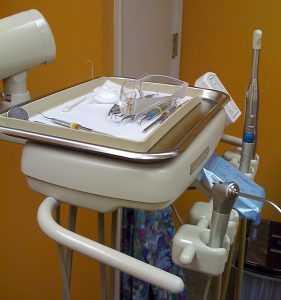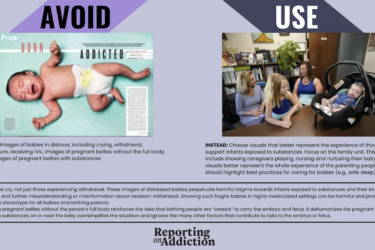
The approaches vary from state to state, but the new year is bringing renewed efforts to broaden access to dental services to millions of Americans who have long lacked care.
In many places, the need is particularly acute among poor adults. Across America, roughly 38 million of them rely upon Medicaid for a broad range of health care benefits. But while children are entitled to dental care under Medicaid, adult dental benefits are considered an optional part of the program.
Maine is one of 13 states that cover dental care for adults only in cases of emergency, as Portland Press Herald reporter Joe Lawlor documented last year in coverage of the state’s long-term problems with oral health disparities. .
Now a state legislator is trying to change that.
“Rep. Drew Gattine of Westbrook, co-chair of the Appropriations Committee, has introduced a bill that would add a “comprehensive” dental benefit for adults who receive MaineCare, the state’s version of Medicaid,” Lawlor wrote recently in a story for his paper.
Gattine told the Press Herald that expanding dental benefits under Medicaid had been a priority of his for years, but that during the administration of the state’s former governor, Republican Paul LePage, there had not been enough political support to press for such a measure. Gattine hopes that under the new administration of Democrat Janet Mills, the chances might be better.
A spokesman for the governor’s office told the Press Herald that Mills “would support efforts to expand dental care in an financially responsible way and will carefully consider all legislative proposals to do so.”
Hawaii has also been in the news for an effort to expand dental care. As in Maine, adult Medicaid beneficiaries in the state have been limited to emergency-only services. But for 2019 at least, they are enjoying a fuller range of benefits.
“Two health insurers in Hawaii will cover dental care for adults on Medicaid after the state program excluded oral health benefits a decade ago,” the Associated Press reported. The two companies are expected to spend almost $1 million to provide basic adult dental care to Medicaid members this year.
“The basic care covers an annual exam and cleaning every six months at no extra cost, as well as simple tooth extraction, filling and topical fluoride,” AP noted. “The program will operate at least through January 2020 when health insurance contracts for the state’s Medicaid program go up for bid.”
Meanwhile, a lack of dental benefits is not the only barrier to care for both children and adults.
Dentists may be plentiful in affluent metropolitan areas but they can be hard to find in poorer and more rural places. Nearly 58 million Americans live in more than 5,800 federally designated dental health professional shortage areas, according to an analysis of federal data by the Henry J. Kaiser Family Foundation.
With an eye to that problem, Wisconsin’s new governor, Democrat Tony Evers has announced that he wants to spend more than $43 million to increase access to dental care, particularly in rural parts of the state, over the next two years.
The funding will include $120,000 to expand the state’s loan repayment program for dentists willing to serve in rural areas, reported Amber Luckett in a piece for WLUK-Green Bay.
Dental workforce innovations are also being discussed in a number of state capitols as cost effective approaches to expanding access.
Late in December, Michigan became the latest state to approve the use of dental therapists as part of an effort to increase oral health care services to underserved state residents.
The auxiliaries, often compared to nurse practitioners, have been in long use in countries around the world, but are relatively new to the United States. They receive training in a narrow range of dental services including drilling, filling and extracting teeth and work as members of dentist-headed teams.
National and state dental organizations strongly resist the model, contending that only dentists should perform what are termed irreversible procedures. Still, Michigan’s outgoing Republican Governor Rick Snyder signed legislation authorizing the new provider model. In a statement, Snyder said that dental therapists would serve as “a unique tool to target the currently underserved populations in our state.”
With the new measure in place, Michigan joined Minnesota, Maine, Vermont and Arizona in approving the use of dental therapists statewide. The model is also being employed in tribal lands in Alaska, Oregon and in the state of Washington.
There, in a recent opinion piece for the Seattle Times, pediatrician Benjamin Danielson urged the legislature to expand state law to allow dental therapists to work throughout the state.
“In 38 out of 39 counties, there aren’t enough dental professionals to meet growing needs. I see patients on a regular basis with health-care problems that are a direct result of lack of timely, routine dental care. It’s no surprise, as in a recent year, approximately 385,000 kids insured under Medicaid in Washington did not get a dental visit of any kind. Our children deserve better than that,” Danielson wrote.
Reporters: are efforts underway this year to broaden access to dental care in your state?






